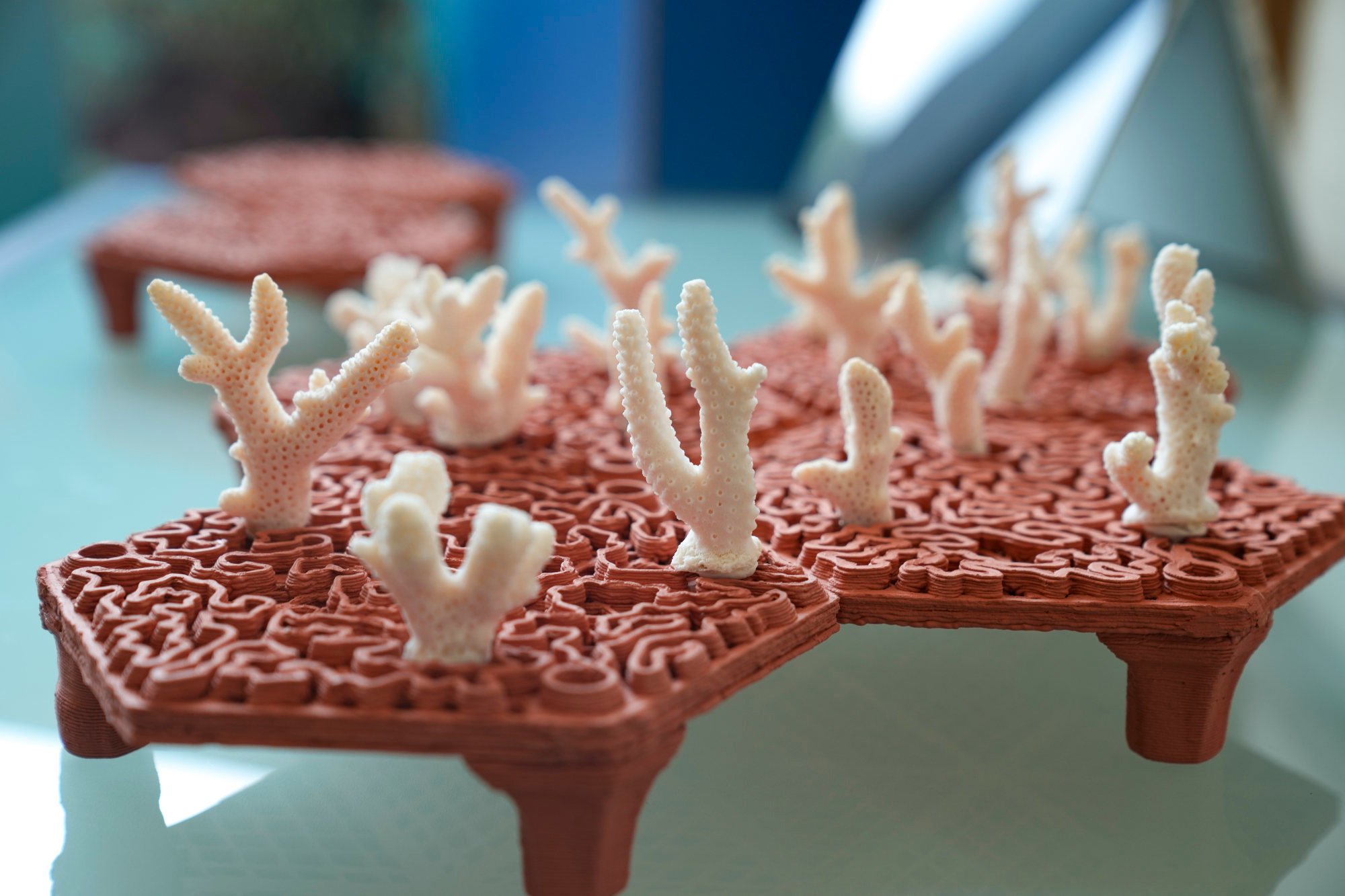
Hong Kong start-up Archireef expands into Abu Dhabi with launch of eco-engineering facility to save marine ecosystems
- Archireef’s facility launched in December in Abu Dhabi can produce five 3D-printed reef tiles a day and it is also working on restoring marine ecosystems in the city
- The reef tiles developed by University of Hong Kong scientists can help coral fragments grow and survive once they are attached to the base on the seabed
The move comes as Archireef has already booked US$2.7 million in sales for 2023, nearly triple the US$1 million recorded for the whole of last year, co-founder and CEO Vriko Yu Pik-fan said in an interview.
“The revenue increase was driven by some of our clients moving into their first year of subscription, after they first started working with us in 2022,” said Yu.

New projects Archireef had won to restore marine ecosystems in the UAE had also helped drive revenue growth, she said.
In January, Archireef began deploying reef tiles at a project backed by ADQ, a sovereign wealth fund in Abu Dhabi, to rebuild 40 square metres of artificial reefs seeded with rescued coral fragments in the city’s coastal waters.
Archireef also launched an eco-engineering facility in December in Abu Dhabi with the capacity to produce five 3D-printed reef tiles a day, exceeding their expectations, said Yu.
“Moving forward, we want to further industrialise our production and make it more cost effective,” said Yu. “We expect that there will be continuous growth.”

While coral reefs occupy less than 1 per cent of the ocean floor, they are home to more than 25 per cent of marine life, according to the UN Environment Programme.
The value of goods and services provided by coral reefs is estimated at US$2.7 trillion each year, and they support more than 1 billion people, but are among the most vulnerable ecosystems to climate change.
Limiting global warming to the threshold of 1.5 degrees is only achievable if action is immediate and if an additional US$1.5 trillion is invested in nature-based solutions between 2022 and 2050, bringing the total investment to US$11 trillion, according to the report.
Archireef chose to expand into the UAE due to its “strong appetite for solutions that protect the environment whilst also improving the lives of humans as well as local wildlife,” said Yu.
“In many ways, we see similarities to Hong Kong in terms of the drive towards a better future for the environment. This made the UAE an ideal landing pad for Archireef, allowing us to leverage the R&D we built up in Hong Kong in an environment that is not all too different from our home market.”
The UAE is the host of COP28, the 28th United Nations Climate Change Conference, which will be held in Dubai in November.
“Across both geographies, we see opportunities for global leadership when it comes to pushing the environmental agenda for the benefit of the world,” said Yu.
“We will be focusing on Hong Kong and the Middle East right now, but keeping Southeast Asia on our radar.”

